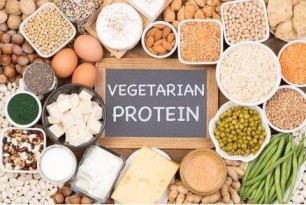General Insurance Blogs, Articles & Updates by - Magma HDI
Have us call you
- RENEW YOUR POLICY
- BUY NEW POLICY

Are you downsizing to a smaller space? Here are five tips to know
Moving to a new house can be an exciting change. And downsizing to a smaller place is beneficial for many reasons, including saving money and getting rid of unused space. However, it can be a challenge to decide which things to take with you and which to give away. If you get emotionally attached to your possessions, this kind of a move may be difficult for you. It's good to have a few tips up your sleeve for an efficient and clutter-free move.
Here are a few things to keep in mind while downsizing your house.
1. Give away or throw away:
One of the effective ways to make room in your new smaller house is by giving or throwing away the items that are no longer in use. For example, if you still have your primary school books or old clothes, you could donate them to the needy. For things that you cannot give away, you can recycle or simply throw them away.
2. Avoid renting storage units:
Storage units can be a great place for storing items when you do not have enough space in your house. They allow you to keep things you no longer use or need. However, before renting one, ask yourself whether you really need it and if you are willing to pay its rent for the next ten years. Remember one rule: if you have not used the item in the last year, you do not require it anymore.
3. Measure out your new space:
It is advisable to measure the dimensions of each room and other vital spaces of your new home. Make sure to get accurate measurements to eliminate any unnecessary furniture that won't fit. Try to manage and utilize the available space smartly to avoid any issues in adjusting to the new environment.
4. Make money for your move:
If you have numerous items that you do not need but can still be used by other people, you can set up a neighbourhood garage sale or resell them online. Create advertisements to generate awareness about your shop.
5. Avoid additional costs:
When you downsize to a smaller house, it can be tempting to buy new furniture that would go with your new place. However, this can cost a hefty amount of money. Think of how you can make the best use of your current furniture, and if you must purchase new things, aim to buy used ones whenever possible.
Setting up a few rules and focusing on what you need and do not need can make your move easier. While you're at it, it might be wise to re-evaluate your home insurance policy. Investing in the best home insurance policy in India will provide you with protection and safety in your new place. If you already have an insurance plan, don't forget to inform the firm about the change in your address to ensure you continue to receive the benefits.
Click HERE to protect your new home with a layer of best home insurance policy in India.
Disclaimer: The information provided above is for illustrative purposes only. To get more details, please refer to policy wordings and prospectus before purchasing a policy.

Easy DIY steps to clean your two wheeler's trunk
You are aware of the importance of cleaning and maintaining your two-wheeler, which can help you extend the life of your vehicle. But do you know that the trunk is often the most neglected space of your two-wheeler?
Your helmet, papers, groceries, umbrella, water bottles, etc., are primarily stored in the trunk of your two-wheeler. This makes it most susceptible to dust and dirt. In this article, we will take a look at a few easy ways to keep your trunk clean.
1. Organize:
The first step to maintaining a clean trunk is to keep everything organised. Try keeping your papers, first aid, and helmet systematically instead of throwing them into the boot. Store the essential documents in clean zip-lock plastic to avoid tears. Keep the first aid in a small pouch for easy access in an emergency. Efficiently organising the materials within the trunk helps you keep the space clean and provides you with easy access whenever you want something.
2. Dry cloth:
We tend to keep the helmets or wet umbrellas directly inside the trunk without giving a thought. One way to ensure clean trunk space is always keeping a dry cloth handy. If it is necessary to keep your wet umbrellas in the boot, keep the umbrella in plastic before placing it into the boot. To ensure that there is no water left, take a dry microfiber cloth and pat dry the area inside the boot. Do not forget to dry the area just under the seat as well. Moisture can lead to corrosion, eventually eating up the entire chassis. To avoid this, always ensure that your vehicle is dry.
3. Use sprays and cleaning solutions:
Ever so often, use mild cleaning liquid to clean the space out. Use a damp cloth to wipe down the area. After this, use the soap to wipe down inside the boot. Use a dry cloth to wipe off any remaining liquids to avoid stains.
4. Accidental spills:
Sometimes, we forget our shopping bags and end up stuffing our trunks with groceries and other essentials. This can create a chance of an accidental spill. Always use a dry cloth and a plastic container to take out the waste. After clearing out the spill, use a wet cloth to wipe down the boot’s insides. Use a non-corrosive spray or a sanitizer to get rid of the greasiness. Use another dry cloth to get rid of the residue. If you notice any dirt inside the nooks and corners, use an old toothbrush or a makeup brush to reach the area and clean out the excess gunk.
These are a few ways in which you can ensure clean trunk space. In the future, if you wish to sell your bike, a well-maintained and clean vehicle is a testament to the excellent ownership displayed by you. Another way to add value to your vehicle is by investing in the best two wheeler insurance in India. Being a responsible owner, you must ensure the safety of your two-wheeler by having the best deals to get guaranteed financial protection against any accident.
Click HERE to know more about the best two wheeler insurance in India.
Disclaimer: The information provided above is for illustrative purposes only. To get more details, please refer to policy wordings and prospectus before purchasing a policy.

Know how to control your bike after a tyre burst
When you go out for a drive, hearing your tyre burst is the last thing you want. It can lead to a deadly accident. Many companies have now introduced tubeless tyres to reduce the chances of a blowout. However, there is very minimal time to control your bike if one does happen.
Since time is of the essence in such emergencies, it is important to know exactly what you need to do. So before going on your next ride, make sure you go through the following tips on controlling your bike after a tyre burst.
1. Do not hit the brakes instantly:
Whenever something goes wrong while driving or when we sense an emergency on the road, our natural instinct is to hit the brakes. However, this is not the universal solution to all emergencies. When you press the brakes suddenly, you may be thrown off your bike into the oncoming traffic.
If you are travelling at high speeds, more than 90 kmph, applying brakes suddenly can result in dangerous situations. Pressing brakes at high speeds can make the vehicle wobble, causing you to lose control of it. Instead, you should try rolling on the bike without using the brakes at all.
2. Maintain appropriate speed:
Speeding is one of the leading causes of accidents occurring on the road. When you go over the speed, say, more than 100 kmph, you are more likely to face a nasty collision in case of a tyre burst.
The chances of safely coming to a halt on time are much higher when travelling at slow/safe speeds. On the other hand, speeding will make your bike uncontrollable during a tyre burst and reduce or eliminate the chances of recovery afterwards.
3. Use engine braking:
If you have a bike with good engine braking, you can use that to slow down your vehicle instead of hitting the brakes. When your bike suffers a tyre burst, shift down the gears and accelerate using engine braking to slow down gradually. By this method, your bike will not suffer from the shock of sudden braking, and the chances of losing control of your bike will reduce significantly.
4. Keep your bike straight:
When experiencing a tyre burst, there isn't much time to avoid an accident or think about directions. However, to save yourself, you should try to keep your bike straight and steady. Turning the motorcycle or veering can worsen the situation.
Of course, if there is a danger zone in front of you, making a turn is the only choice. However, do this with acute linearity because a sudden directional change can unbalance the bike and result in a mishap.
Accidents are unpredictable and can happen when we least expect them. Keeping a check on your bike and conducting regular maintenance can prevent an unexpected tyre burst. In addition to it, secure yourself and bike in such uncertain times through individual accident insurance. Ride safe so that you enjoy riding your bike again!
Click HERE to buy the best individual accident insurance.
Disclaimer: The information provided above is for illustrative purposes only. To get more details, please refer to policy wordings and prospectus before purchasing a policy.

Five best tips to adhere for ensuring total safety of workers at manufacturing facilities and factories
Workers are the backbone of any manufacturing facility. Working relentlessly to get the best quality products is a result of their hard work. But sometimes, we tend to neglect the importance of these workers and take their safety for granted. Inspection of workspace safety throughout the day is one way to ensure a safe environment in the factory. This also shows that you care for your employees and their well-being. Safe working spaces have a direct effect on the productivity of the workforce.
In this article, we will discuss a few ways in which you can ensure the total safety of your workers.
1. Usage of machines and their maintenance:
Improper use of machines is one of the leading causes of workplace injury. Using tools and equipment for their intended purpose only is the first step to avoiding an accident. For the newer workforce, orientation sessions can be conducted to familiarise them with the latest tools and machinery. Regular cleaning and inspection should also be made part of their work to ensure added safety and extended lifetime of the machines.
2. Clear the aisles:
Aisles are the most used parts of a factory. Be it the moving of various things from one place to another or simply the employee movement within the facility. It is extremely important to frequently clean the space if the area is used for liquids and other greasy materials. Clean up any spillage immediately to ensure the best working conditions. Also, make sure that there are no small parts of the machinery lying around that might cause tripping and falling.
3. Keep emergency exits clear:
Blocked emergency exits have been the reason for some of the most dangerous and fatal hazards in manufacturing units and factories. To ensure safe access to the exit, avoid blocking emergency exits. A cluttered work area will also pose a danger if one wants to exit immediately. Placing different objects in their specified storage areas will help keep the work area clean and organised.
4. Eliminating fire hazards:
Working with combustible materials can pose real threats to your factory and the people working in it. If you work with combustion tools, keeping only the required amount at hand can ensure a lesser chance of any danger. When not using the chemicals, keep them stored in a cool dark place away from ignition points. Do not forget to store the waste in metal holders and dispose of it daily.
5. Take breaks:
Work-related injuries are caused due to strained muscles and over exhaustion by the workers. When tired and burnt out, one finds it difficult to focus and deliver top-quality work. Instead, taking regular breaks ensures alertness during work. Providing the workers with proper restrooms and clean drinking water facilities is another way to ensure that your workers are taken care of and that you care for their well-being. A rule of thumb is to allow a fifteen-minute and a thirty-minute break for working for four hours and six hours, respectively.
These are a few ways to ensure that your workers are safe at the facility. Investing time and efforts for the well-being of your workers will provide a dedicated workforce that delivers top-quality outcomes. To add more value to their lives and work, invest in public liability insurance to help them and your factory in an emergency and cover the medical and other expenses incurred during the process.
Public liability insurance is a safety net that provides financial protection if your business faces a compensation claim due to a worker’s injury or property damage. Do not forget to look for the best public liability insurance India options.
Click HERE to find out more about public liability insurance India.
Disclaimer: The information provided above is for illustrative purposes only. To get more details, please refer to policy wordings and prospectus before purchasing a policy.

Eight best tips to help you pass your driving test
A driving test can be one of the biggest challenges for many. The exam can elevate multiple emotions and increase your stress about the final results. However, getting your driver’s licence and getting out on the road is a joyful feeling.
To help you pass the test with ease, here are a few tips that will come in handy.
1. Stay calm and do not panic:
It is normal to feel anxious and worried about the driving test. There are high chances of messing up when you are stressed. Therefore, avoid panicking during the exam and plan out your approach with a calm mind.
2. Get experience:
Practice and experience are two essential elements of passing the test. And both these elements complement each other. Without proper practice, you won’t be able to gain the experience that you might need. Get to know all the rules and regulations, and have an experienced driver to guide you on the dos and don’ts of driving.
3. Take the car that is familiar to you:
One of the critical tips to pass the driving test is to take your car with you. An unfamiliar vehicle can make giving the exam challenging. For example, if it rains, you will be comfortable handling your car’s controls rather than searching for the controls in a vehicle that is new to you. Another benefit of taking your car is that you will be familiar with the car’s judgment, and the test will go easier.
4. Use both hands for steering the wheel:
For a positive result and better judgment, use both your hands to get the grip of your steering wheel. Using only one hand may create difficulties in driving, resulting in a failed driving test.
5. Learn to drive in different conditions:
Weather is unpredictable. Hence, you must learn how to drive in different weather conditions, so you are always prepared in case of any sudden weather changes. Furthermore, practising driving in various weather conditions will help you be on the safer side.
6. Keep your basics right:
It is common for people to forget the basics while they are tense. Due to nervousness, standard rules such as checking mirrors can slip from the mind. Avoid making common mistakes like not checking the surroundings, lack of focus while reverse parking, and more. Keeping your basics right will help ease the burden and ensure a favourable outcome from your driving exam.
7. Do not hesitate to ask questions to the examiner:
Often, people feel scared to ask questions to the examiner in a fear that they will sound stupid or what the examiner might think. If you are unclear about what the examiner asked you to perform, do not hesitate to ask them to repeat what they said. Open communication is the key to passing your driving test without messing up.
8. Arrive at least 30 minutes before the given time:
Do not panic and rush to the location at the last hour. Doing so will create unnecessary stress and put you in a panic mode, affecting your driving exam. Therefore, get there 30 minutes before the scheduled test to get an idea about the surroundings.
Driving tests can be cleared quickly with a calm mind and following the tips mentioned above. Once you pass the tests, ensure that you follow all the traffic rules. Always carry essential documents with you, such as your driving licence, PUC, online car insurance details, so that you will be all clear even if the traffic police stops and question you.
Click HERE to know more about online car insurance plans best suited for your car.
Disclaimer: The information provided above is for illustrative purposes only. To get more details, please refer to policy wordings and prospectus before purchasing a policy.

Here's how you can fix the chain slipping problem in your bike
The chain on the motorcycle is one of the essential parts that helps its swift motion. A loose or malfunctioning chain would restrict the vehicle's movement. Regular maintenance and oiling are a few ways to ensure that the chain on your bike is working correctly. However, even after proper upkeep, we often encounter situations when the chain is loose. One of the main reasons for loose chains is untightened bolts. Other reasons can be a worn-down chain, mismatched teeth alignment, or the wrong sized chain.
Loose chains can have hazardous consequences. You can lose control of your bike, which can be threatening, especially on a busy road. Chain breakage can hurt the biker's leg and cause injuries. It can also get caught between the wheels and cause an abrupt stop, leading to the bike toppling over.
In this article, we will discuss a few ways to avoid the constant slipping of the chains.
1. Fixing new chains:
Brand new chains tend to stretch a little. The interlinking joints wear into each other gradually. It is advisable to ride at least fifty kilometres to loosen up the new chain a bit. Since the quality of chains can vary depending on the company and the metal, riding for long distances allows the new chain to adjust and get to the optimum stretch. Once you feel like the chains have loosened up a little, you can tighten them. After this initial step, you would not need to worry about the chains for some time.
2. Tightening the bolts:
Sometimes the bolts are not tight enough or become loose over time. Talk to a mechanic and understand how much the bolts need to be tightened to keep the chain in place and prevent it from slipping away.
If you are someone who goes off-roading and manoeuvers through treacherous tracks, then this tip might be helpful to you. The constant jerks and tension that your bike goes through can also lead to the loosening of the bolts. Using a lock nut can help prevent these bolts from loosening.
3. Replacing the sprockets:
If you notice that the teeth on your chains have been worn down, you must replace them. Even if only one tooth has been affected, it can cause damage to the others as well. So timely replacement of the sprockets is vital to ensure that your chain lasts longer.
4. Changing the chain:
Over time the chains experience considerable wear and tear and can have almost no functionality. This will require you to make changes and alterations to the chain constantly. If you face this problem frequently, it is high time to consider changing the chain altogether.
These are a few ways to ensure your chain is working correctly. Chain lubrication is another way to ensure your chain lasts longer and remains intact in its position. A well-functioning chain is vital to the overall health of the bike.
Worn-out chains can cause severe accidents and be dangerous for yourself and others on the road. Broken chains can impact your bike's performance. To safeguard yourself against repair expenses, you must look into bike insurance online. With the ease of technology, now you can browse through multiple options and make hassle-free investments in the best bike insurance that satisfies your requirements. By buying bike insurance online, you get an additional advantage of instant service and a reasonable premium by eliminating intermediaries.
Click HERE to check out bike insurance online.
Disclaimer: The information provided above is for illustrative purposes only. To get more details, please refer to policy wordings and prospectus before purchasing a policy.

Here are ten reasons why motor insurance claims get rejected
We all know motor insurance has been made mandatory in our country. The purpose of purchasing car insurance coverage is to assure financial protection for the vehicle if it is involved in an accident.
When you file a claim with your insurer for automobile damage, you expect them to reimburse you as soon as possible. There are three possibilities in that situation: your claim gets granted, your insurance company may request further information, or your claim gets denied. And often, motor owners fail to get their car insurance claims resolved to their satisfaction.
If you’re facing a similar circumstance, you might want to investigate the following causes for claim denials.
1. Driving while intoxicated:
If the driver engages in driving under the influence of alcohol or other intoxicants, in that case, the insurer will deny the claim.
2. An unreal claim of the No Claim Bonus (NCB):
The insurer refuses any claim for NCB falsely declared and cancels any benefits under the policy’s damaged section.
3. Unidentified or unauthorized driver:
The claim gets rejected if the driver doesn’t possess a valid driver’s licence or if the permit is fraudulent, expired, or for a different vehicle class. This can also happen if someone besides the registered owner is driving it.
4. Delay in paying the premiums:
Go through your policy to find if it grants you a grace period to pay the premium beyond the deadline. Not paying premiums on time denies the claim and is one of the most common reasons. Avoid delays and buy motor insurance online for convenient paying options.
5. If there is no evidence to prove the crash happened:
Having no photos of the scene or any other documentation of the collision or car damage may force the insurer to deny your claim.
6. Claim of non-accidental loss:
The insurance doesn’t cover the wear and tear of your vehicle. Therefore claiming any damage that isn’t accidental might result in the claim getting rejected.
7. Confidentiality of information:
When you buy motor insurance online, you must provide the insurance company with every personal detail and update the same if required. This includes your name, address and any past car accidents. The insurer possesses the power to reject your claim due to non-disclosure.
8. Automobile not appropriately parked:
If your vehicle was not in a secure location during the time of theft or crash, your claim gets denied. Therefore, the insurer will always ask if you had parked your car correctly.
9. Missing monitor or safety device:
Claims get denied if you haven’t installed alarms, locks or tracking devices in your vehicle despite being mentioned.
10. Ongoing inspection:
Most insurers demand that your motor be examined before purchasing insurance. It lets them know of all harm that has already occurred. Insurers have the power to reject your claim at any point during the insurance claim procedure if you fail to follow this protocol.
After a vehicle accident, the last thing you want to deal with is an insurance claim denial. Repairing an automobile may burn a hole in your pocket without insurance plan coverage. Focus on the points mentioned earlier to reduce the risk of a rejected insurance claim. Check the reviews of other customers for their claim settlement experiences with insurance companies before you buy motor insurance online. So, follow the above tips to avoid the situation that leads to denial of your insurance claim.
To buy motor insurance online, click HERE .
Disclaimer: The information provided above is for illustrative purposes only. To get more details, please refer to policy wordings and prospectus before purchasing a policy.

How can non-functional traffic lights affect your journey during the night
Traffic signals are an essential part of road safety. These signals are installed at intersections and busy roads to help control the movement of vehicles and avoid unnecessary congestion. They are exponentially effective during the night time when drivers generally tend to break the rules and cause mayhem on the road, which could lead to severe consequences.
But what happens when the traffic lights stop working? How can non-functional lights affect your journey during the night? By the end of this blog, you will understand the importance of traffic lights and how the situation could go haywire in their absence.
1. Risk of collisions:
At non-functional traffic lights, vehicles generally don’t stop or slow down, which usually leads to severe accidental consequences. This can put the safety of cars, drivers, passengers, and pedestrians in grave danger.
2. An increasing number of accidents:
Many underage drivers tend to drive fast and avoid maintaining the rules, which poses a massive threat to other vehicles on the road. And in the absence of traffic lights, this situation can get out of control. Speeding at unmanaged intersections invites potential safety hazards and can wreck many lives, thus increasing the number of casualties.
3. Massive traffic handling issues:
Traffic lights don't just avoid accidents; they also help handle the traffic emerging from all directions. The drivers who avoid waiting for their turns usually try to ignore the rules. They have to stop at the signals to be in sync with the other vehicles.
But, if the traffic lights are not functioning correctly, they get the liberty to jump signals without any trouble. It can cause considerable stir and chaos and make it challenging to handle the traffic.
4. Slow-moving traffic will be more chaotic:
We all have been stuck in slow-moving traffic. It takes up time and patience. Worse than slow-moving traffic is heavy traffic. It disrupts the movement and creates a jam for longer hours and distances. Traffic lights act as a saviour as it controls the direction of the fleet of vehicles and allows different sections to go first.
In the absence of functional traffic lights, the slow-moving traffic turns into heavy traffic as it will take a long time to clear the clutter. Vehicles have no idea of traffic movement at the defunct traffic signals. Overcrowding of vehicles becomes the cause of headaches for the drivers.
We discussed how the absence of traffic lights would increase the risk of road accidents. Even if the traffic lights are non-functional, we as responsible drivers must take all the necessary precautions from our side while driving a vehicle at night. Always slow down at intersections, give proper indication while making a turn, avoid over-speeding or honking.
Vehicles often get involved in accidents at night due to minor errors at the driver's part at the intersections. Investing in insurance is mandatory and of utmost importance to safeguard your vehicle against damage during unforeseen circumstances. Analyze your requirements, buy insurance from the best motor insurance company in India and always have a safe and protected ride.
Click HERE to know more about the best motor insurance company in India.
Disclaimer: The information provided above is for illustrative purposes only. To get more details, please refer to policy wordings and prospectus before purchasing a policy.

How can you prevent third-party data breaches
Outsourcing some of your important work to dedicated vendors is becoming increasingly frequent. These third parties are often not under your control and may not provide complete insight into their information security processes. Some vendors have strong security standards and risk management procedures, while others may not.
When your vendor's or business partner's computer system is hacked and sensitive data is exposed, this is known as a third-party data breach. Cybercriminals can target any vendor in your company ecosystem, and industry experts estimate that third-party companies are responsible for over 60% of all data breaches.
Data breaches are not only disruptive but also expensive. A breach can be challenging to recover from, especially for small businesses that cannot absorb the expenditure. However, public liability insurance can help enterprises survive. So, if you're a business owner, get a quote online to reduce your risk.
Avoiding a data breach can seem challenging as the volume of information grows and the threat landscape changes. However, this is not the case. Here are four helpful suggestions for preventing data breaches in your company.
1. Audit third-party vendors' cybersecurity:
It's critical to assess the risk of collaborating with a third party thoroughly. Neglecting this can create an alarming situation for your organisation. You can regulate the security assessment by incorporating questionnaires that inspect the security policies of the third party.
Thoroughly analyse all the security touchpoints to obtain a clear picture of vendor cyber risk. Companies should automate assessments to make them swift and scalable.
2. Incorporate a security policy into your contract:
Every organisation should have a written information security policy that covers all aspects of managing data on their network. This includes what data can be collected, how to manage it, how long each type of data should be retained for, the level of security controls required for each data type, etc.
3. Limit access to data:
There is a considerable risk of a breach if sensitive data is accessible to all vendors without limits. Therefore, limiting and regulating the data access to vendors must be practiced to protect your company against data compromise.
With so many distinct departments and vendors associated, it can get complicated. As a result, knowing all the risks pertaining to the organisation becomes critical.
4. Continuous monitoring:
The online world is fluid, and cyber threats are always changing. Furthermore, businesses constantly release new software and technologies that may expose them to attacks. Because of the ever-changing world, performing periodic cyber risk assessments of your third parties is no longer sufficient.
Instead, to avoid third-party data breaches, it's critical to keep an eye on your suppliers for new cyber vulnerabilities and receive real-time notifications about any changes in their procedures.
Following these four practices will lessen the chance of a data breach in your company. You can substantially improve cybersecurity by prioritising data protection and selecting the proper tools to assist you. Also, it's essential to have public liability insurance to pay for expenses related to a breach. Choose the right plan for your business by comparing public liability insurance prices online and adding a strong layer of financial security.
Click HERE to know more about public liability insurance prices.
Disclaimer: The information provided above is for illustrative purposes only. To get more details, please refer to policy wordings and prospectus before purchasing a policy.

Insurance renewal: Verify these checkboxes before your buy bike insurance
Owning a two-wheeler not only makes the commute between two places easy, it also becomes a convenient option when you want to skip the traffic.
And, as you notice the several other benefits of using a two-wheeler, you choose the best services for your bike. A well-maintained motorcycle gives the best performance and comfort. Be it the service centre or the insurance provider; you do not want to take either of these lightly. However, owing to the fast-paced life that we are leading, it can become challenging to keep note of the next bike servicing or the renewal of your bike insurance.
Choosing the best insurance provider can be a daunting task, but you can find the best options and renew bike insurance online with little research and time.
This article will look at a few things you need to keep before renewing bike insurance online.
1. No Claim Bonus:
No claim bonus or NCB is a reward that your insurer provides when you have not made any claims in the previous year. An NCB is a testimonial of responsible driving. The benefit is in the form of concessions or discounts for future renewals. Even if you switch or sell your previous bike, your NCB stays with you and is applicable on the next purchase.
2. Coverage:
You don’t need to continue with your previous policy. You can opt for insurance policies that provide better coverage at lower premiums. Over your last term, you must have realised what other services you require. Hence, choose increased coverage or make changes as per your requirements.
3. Setting the IDV:
During every renewal period, it is advisable to change your IDV. You can decrease or increase the insured declared value that the insurance provider is bound to pay you in case of a total loss of your bike. Understanding IDV is crucial to assessing the correct value for your vehicle. Opting for lower IDV means you are underinsuring your motorcycle while choosing higher IDV means a higher premium.
4. Add on covers:
While renewing your policy, you can opt for various add-ons on your insurance cover. This is an intelligent way of reaping more benefits for a slightly higher premium. These add-ons are worth the extra premium. Zero depreciation, passenger assistance, roadside assistance, NCB protection are a few options you can choose.
5. Choose in advance:
It is illegal to drive a bike without valid insurance papers. So instead of waiting for the last minute to change or renew your insurance, it is best to start looking for options before the end of the policy period. This way, you can have ample time to consider various options before you make the final decision.
These are the few things you need to keep in mind before renewing your bike insurance. Do not forget to miss out on the renewal dates, as it can affect the continuity of your policy and other benefits.
Choosing the right insurance can be a challenging task, but do not be afraid to ask questions to your insurance provider to clear your doubts. Their job is to help you figure out the best options for you. Read reviews online, as they can help you assess the credibility of the company you are opting for. You can renew bike insurance online quickly and efficiently with these things in mind.
Click HERE to renew bike insurance online.
Disclaimer: The information provided above is for illustrative purposes only. To get more details, please refer to policy wordings and prospectus before purchasing a policy.

Take care of these things related to your car's headlights before setting off on a road trip
The thought of a road trip gets us all excited. It sure becomes very energetic, fun, and memorable with all our close family members and friends. As a thumb rule, you always double-check everything on your “packing list” to ensure you don't miss out on any essential item.
If you do this for yourself and your family members, how about double-checking your car before starting a road trip? Your car’s headlights also play a vital role in ensuring a safe journey during the night and avoiding any mishaps on the road.
In this blog, we will be discussing the checklist for the headlights of your vehicle that you need to take care of before starting your trip.
1. Got a fuse problem:
Check and see if you gather all information regarding the fuse blowout of your headlights. If you are sure of the damage, examine for loose wires. If you find any issues, fix them at the earliest. And if nothing works, replace the headlights (especially if there is a high beam bulb problem).
2. Do not delay replacement:
Examine the light emitted from your car’s headlights. Do you suspect that they have dimmed? If you conclude that your lights have dimmed (called burnout), you must replace the headlights with new ones to avoid risking your safety on the road, especially during the night time. Uneven terrains and night driving can be risky when you have burnt-out headlights. It poses threats of accidents and compromises the car's safety, the driver, the passengers, and other vehicles on the road.
3. Make smart changes:
Whenever you feel that there is a need to replace the light bulbs of your car's headlights, always make sure that you do so in pairs. If the light has dimmed, exchange the old bulbs for the new ones in twos. That way, it would make the headlights consistent instead of one old and one new light bulb, which would create a difference in the intensity of the light beam. It would make it difficult for other drivers to understand the indication and affect your visibility on the road.
4. Align the beams of light:
Turn on the headlights of your car and check the light beams closely. Make sure that the light is aligned and aimed at the road. If the light is directed towards the vehicle approaching your direction, it may cause an accident as the other person would find it difficult to see what is in front of them. This would result in a fatal crash endangering car occupants and other vehicles on the road.
These were some tips you could take care of related to your car’s headlights. Few other pointers include upgrading the versions of headlights compatible with your vehicle and other DIY hacks for which you wouldn’t always need a professional mechanic to help you with minor replacements, etc.
And while you ensure the checklist of your car’s headlight before heading on a trip, it is also essential to verify that your car insurance is updated. Keep track of your car insurance renewal dates to avoid interruption in the benefits and save your policy from lapsing.
Click HERE to know more about car insurance renewal.
Disclaimer: The information provided above is for illustrative purposes only. To get more details, please refer to policy wordings and prospectus before purchasing a policy.

Implement these tips to ensure the safety of truck drivers by minimizing accidents
Driving trucks is considered to be a dangerous job in many countries. It requires more strength, focus, and training to drive a massive vehicle. Most trucks have more than six tyres, whereas large trucks can have eighteen wheels and more. Truck drivers have to be very cautious operating such heavy machinery with material weighing tons. They need to be careful on a busy road with smaller-sized vehicles around.
Trucks are an integral part of the transportation and logistics teams. They help move various supplies around several industries and within different sets of factories within a single sector.
In such scenarios, the training of truck drivers becomes essential. By training them about the rules and safety measures, you protect them and avoid the risk of accidents and subsequent medical costs and insurance claims. But what are specific pointers for truck drivers that they should follow strictly?
This blog will discuss all the measures they can take. Implement these tips to ensure the safety of truck drivers by minimising accidents.
1. Stay patient:
While driving such a giant vehicle, truck drivers need to ensure that they are calm, relaxed, and attentive. Even the tiniest anger or frustration can distract drivers who can have severe accidental consequences and potentially cause heavy damage to the truck, other vehicles, and people on the road. Drivers must avoid any road rage behaviour and mindset even when cut off or honked by other drivers on the road.
2. Seatbelts are a must:
Wearing your seatbelt is a universal rule for all four-wheelers and above. Trucks bear no difference here. It is even more necessary since trucks are enormous, and maintaining balance, sudden jerks, close calls with other vehicles, and poor road conditions can be tricky for a driver. You can lose momentum and control of your body during such sudden movements and putting your driving at risk.
3. Be on the lookout for blind spots:
Blind spots can make your life challenging as a truck driver. It is often difficult to see the positioning of other cars, and the side view and rearview mirrors might not be of a huge help due to the height and captured visibility. Hence, while driving the truck, it is suggested that they leave a gap around the corners. Keep a watch manually while changing lanes to avoid the risk of blind spots.
4. Use signals correctly:
It is crucial to know what each signal means and how it would impact you and other vehicles on the road while moving. Give the proper indication so that the car around you knows which direction you might be turning. Leaving the other drivers on the road hanging and anticipating your next move can cause dangerous collisions and accidents.
Other tips include carrying a bag of spare essentials for emergencies, avoiding alcohol before and while driving, having spare parts and tools handy, not using cell phones or any other gadgets while driving, etc. These measures are quite common and essential to implement earnestly.
That’s a wrap on how you can implement these tips to ensure the safety of truck drivers by minimising accidents. It is equally important to take care of your truck since it encounters different terrains, and long distances can cause wear and tear of the tyres and damage other parts. For such sudden circumstances, motor insurance will safeguard your vehicle. You can explore your options and buy motor insurance online to provide firm protection to the big machine.
Click HERE to know more about how you can buy motor insurance online.
Disclaimer: The information provided above is for illustrative purposes only. To get more details, please refer to policy wordings and prospectus before purchasing a policy.

Know about these protein rich foods that can be good alternatives for vegetarians
It is a widespread concern that healthy diets may not provide enough protein to the body. Muscle growth and maintenance, health of skin and hair are all dependent on getting enough protein. It also helps keep you satiated, which is essential.
Why is there a need for protein?
Proteins are made up of amino acids, and an adequate supply of amino acids is necessary for the normal development of our cells. There are several crucial parts of our bodies where proteins play an important role. These include our skin, nails, and other vital organs.
Many people are curious about how vegetarians can receive enough protein in their diets, but it's pretty simple. If you're attempting to stop eating meat and consume more veggies or turning vegan, these vegetarian sources of proteins can assist you in meeting your daily protein intake.
1. Lentils:
Adding lentils, or dal, to a daily meal is common in Indian cuisine. With each cup containing roughly 18 grams of protein, fresh salads, substantial soups, and dals laced with spices are just a few of the foods that can be made with them. Lentils are a good source of protein and fibre, which can aid in the maintenance of a healthy microbiome in the intestines.
2. Oats:
Eating oats is a simple and delicious way to increase the protein intake in your daily diet. In addition to being high in protein, oats are a powerhouse of soluble fibre. Clinical studies show that oats can help lower cholesterol and reduce the risk of heart disease. While not considered a total protein, oats provide a higher quality protein than some commonly consumed grains, such as rice and wheat.
3. Legumes:
In general, legumes are thought of as protein-rich foods because of their large concentration of essential amino acids. For example, chickpeas have roughly 15 grams of protein per serving, as well as a slew of other nutrients that will keep you strong, healthy, and fit.
4. Nuts:
Nuts are considered nutritional powerhouses. They are an excellent source of dietary protein for vegetarians and vegans alike. Nuts like almonds and cashews are a good source of protein and are considered a protein-rich diet.
5. Green Peas:
Green peas are a good source of vitamin A, potassium, and folate, all found in abundance in this dish. Simply adding green peas to your everyday vegetarian diet can help in supplying your body with the additional protein it demands.
6. Tofu:
Adding tofu to your plant-based diet can be a great decision since it is an excellent source of protein and minerals. Usually, people consume Tofu as a replacement or a veg-alternative to meatballs to add to their healthy lifestyle.
Final Words
If you're eating a nutritious diet, you're unlikely to have protein deficits as experienced by many vegetarians and vegans. The above list might serve as a starting point for anyone who wants to boost the consumption of vegetarian sources of protein.
Speaking of nutrition, if you are not regularly consuming essential nutrients and minerals via protein food items, your body may become vulnerable to diseases or infections. Hence, considering health insurance is an excellent idea to assist you in providing additional financial protection you always require to keep you stress-free and ensure your well-being.
Click HERE to know more about different health insurance plans.
Disclaimer: The information provided above is for illustrative purposes only. To get more details, please refer to policy wordings and prospectus before purchasing a policy.

Let us know more about 'Act of God' insurance and their clauses
The events that are not under any human's control, cannot be predicted, and are bound to happen, are called an "act of God." The unavoidable destruction caused by natural disasters, including earthquakes, floods, cyclones, volcanic eruptions, asteroid collisions, etc., are considered "act of God". One cannot estimate these vast events, and occurrences cannot be counted at their time of happening. They happen, and humankind must bear the passive consequences of such active events.
Did you know that insurance covers damages due to “act of God” events? Let's learn more about the chronology of events and decisions taken by the government and other companies and help you become more knowledgeable about insurance and its clauses.
1. What exactly is the "Act of God" insurance?
This insurance covers damages and losses done due to incidents that come under the act of God. But if there is any harm or damage done to the property due to human ignorance and negligence, family dispute, etc., you will not be reimbursed and covered through the act of God insurance.
2. Is the "Act of God" coverage the same everywhere?
A lot of similar events are covered in the act of God insurance. The similarity is relatively high. But certain events might be an odd one out in a policy and is not included for other circumstances. You need to keep yourself up to date with the clauses, terms, conditions, prices, renewal rates, exceptions, etc.
3. Do you need to assess your insured properties and assets?
You need to evaluate your properties, assets, etc., that are insured. It is essential to assess the risks of those possessions and chart out the potential risks that can happen under God's name. This will help you clarify the dangers and negative possibilities and how you could recover from them using the liabilities that come under the act of God insurance. These risk evaluations will help you reap the benefits and help spread awareness about the act of good insurance and its pros and cons.
Another important clause is the extreme climate conditions you need to be aware of. You must purchase the act of God insurance for third-party protection and security of your properties, etc., against all unavoidable dangers. The policy is eligible for termination if the authorities observe any inconsistencies, negligence, zero remorse, and rectification of mistakes. Examine the policy in detail and watch for any hidden clause and terms and conditions that might devoid you of the "Act of God" insurance benefits. You need to present the proof of these events to claim your insurance and reap the benefits that come along with it. Also remember, insurance companies may limit the coverage for acts of God under some specific terms and conditions.
Apart from the "Act of God" events that you might or might not see coming, you need to take care of the risks which can make you liable/responsible for inevitable mishaps (e.g., a machinery accident in your factory causing injuries to the workers). You need to purchase public liability insurance in India to cover such alarming accidents. Explore your options and determine which insurance plan suits you and your business's needs.
Click HERE to know more about the best public liability insurance in India.
Disclaimer: The information provided above is for illustrative purposes only. To get more details, please refer to policy wordings and prospectus before purchasing a policy.

These good habits can increase the longevity of your two-wheeler
As a bike owner, you enjoy all the perks that come with it. Whether going to the nearest grocery store to get your monthly supplies or taking an impromptu long trip, one can not deny the many benefits of owning a two-wheeler. But as with great power comes great responsibility. Having a bike also means dedicated time to take care of it. So, it is your responsibility to keep your bike moving and functioning.
Irrespective of how often you drive your two-wheelers, it is susceptible to daily wear and tear. It is, however, possible to increase the longevity of bikes to some extent.
In this article, we will take a look at a few ways in which you can increase the longevity of your two-wheeler. Extending a bike’s life is not a very challenging task. You need to be slightly attentive to the signs indicating any faults and provide regular upkeep without constantly worrying about maintaining it.
1. Regular servicing:
Regular servicing ensures that the bike performs optimally. Your service cycle depends on how old your bike is. Speak to an expert and understand the servicing cycle for your two-wheelers. Things such as changing engine oil, ensuring proper functionality of brakes, checking for corrosion are a few things to note during the next servicing.
2. Riding habits:
The lack of coordination between the clutch and gear affects the bike’s performance in the long run. This puts an unnecessary load on the engine if done constantly. Giving ample time to yourself to understand gear shift and the bike's speed will help you perform better on the road.
3. Manage the load:
Overburdening the bike during long road trips can have dire effects on the vehicle. You must balance out excessive workload with regular maintenance. However, if you overload the bike with minimal aftercare, the bike is bound to break down eventually.
4. Keep it clean:
Maintaining your bike through regular cleaning can help you increase the functionality of your two-wheeler. Use soaps specifically meant for your bikes to wash with water and a cloth. Always wipe the bike thoroughly after every wash. After driving through rains or dirty tracks, wipe down your bike to avoid dust and dirt accumulation to avoid corrosion.
Dust and dirt can affect the engine’s functionality and spoil the paint job on the vehicle. A dirty bike is more susceptible to various problems such as rusting that can impact its overall performance.
5. Take note of minor changes and problems:
Usually, vehicles produce different sounds or low-performance levels as an indicator for various problems that are likely to arise. Do not neglect the problems, immediately take your two-wheeler to the service centre and get it checked thoroughly.
These were a few things to keep in mind if you want to ensure a long life for your two-wheelers. Sometimes no matter what you do, your bikes can still cause troubles and might need extensive servicing and change in parts. All changes said and done can come out to be pretty expensive.
It is a wise option to invest in 2 wheeler insurance to cover the damages, cost involved in repairs, and replacement of parts. Buying an ideal 2 wheeler insurance is also a good habit of increasing the longevity of your two-wheeler and can be beneficial for it to cover more distances.
Click HERE to know more about 2 wheeler insurance.
Disclaimer: The information provided above is for illustrative purposes only. To get more details, please refer to policy wordings and prospectus before purchasing a policy.

These can be the probable reasons for your bike failing to start
It can be highly frustrating for any rider to turn the key in the ignition, and the vehicle fails to start. There are several reasons for your bike giving way and facing trouble starting smoothly. While a motorcycle's design is simple to understand, it can be challenging to point out the reasons for these ignition issues. However, knowing about the possible reasons causing these issues is essential in maintaining your vehicle and fixing these problems.
You may consider the extreme winter season to be the main reason your bike fails to start, but there are several more. While you can always rely on bike insurance for critical problems, you can read the points below to learn the probable reasons for the two-wheeler failing to start.
1. The battery is weak or dead:
Some two-wheelers are designed to start using an electric self-start. Their motor is dependent on the battery. If this motorcycle does not start when you press the self-start button, it could be because the battery did not transfer a sufficient charge to kickstart the motor.
A weak or dead battery cannot provide this high voltage to the engine, and therefore, the electric self-start won't be operational. In this case, you may have to call a mechanic to either recharge or replace your bike's battery.
2. Too cold:
This frozen state of the bike is caused mainly due to extreme cold weather conditions. Combustion doesn't occur correctly as the gasoline in the vehicle doesn't evaporate when mixed with air. There might be ice build-up that is causing the malfunction. You can use a space heater directly on the engine for 15-20 mins to get your motor running.
3. The fuel tank vent is clogged:
Since the fuel tank vent in most motorcycles is too narrow, it becomes inconvenient to supply fuel to the intake system consistently. The vent can get clogged due to no regular maintenance and cleaning, and the fuel supply gets restricted. If you find yourself stuck in this mess, try to unclog the duct with a thin pin or get it cleaned.
4. Blocking intake or exhaust:
A blocked airbox or a blocked muffler exit may be another significant reason your bike won’t start easily. The motorcycle’s mechanism is dependent on the intake and exhaust system, and your bike will give away if it is restricted or clogged for some reason. Get it checked by a professional as soon as possible to avoid further damage.
5. The clutch does not engage properly:
The clutch lever needs to be correctly pulled to start your bike successfully. Often, problems can occur in the ignition when the clutch does not engage correctly. Try again by bringing your transmission into neutral and then starting the bike. Sometimes, riders turn off their bike while in gear and forget to put it back into neutral. You must set your bike into neutral and start again.
6. Problems with the spark plug wire:
A loose or cracked spark plug wire can also cause your bike to fail to start. Constant heating of the engine will eventually deteriorate the material of the wires in the motorcycle over time. Places with extreme weather conditions can be a catalyst in the cracking of the spark plug wire. If you find any cracks or slits in your bike's wires, replace them to avoid any issues.
These are a few likely reasons why your bike may fail to start. While investing in a reliable bike insurance plan can secure your vehicle by covering the expenses involved in the garage repairs, it is essential to know about the issues that could arise with your two-wheeler. Being aware and getting to the root of every problem can avoid future losses.
Click HERE to buy a comprehensive bike insurance plan for your new bike.
Disclaimer: The information provided above is for illustrative purposes only. To get more details, please refer to policy wordings and prospectus before purchasing a policy.

Here's why windshield wipers are important
What are the primary things that come to your mind when you think of car maintenance? Oil changes and engine inspections. But what most of us forget are windshield wipers. These underrated blades are just as crucial as the engine of your vehicle. We do not need them often, and wipers don't seem to do much in our daily driving. So, it's assumed that they don't require much attention. However, during unexpected changes in the weather, wipers are an integral part of your vehicle maintenance to ensure safe driving.
Why are car wipers important?
The first pair of wipers for cars were made back in 1903, and since then, their use has advanced significantly. These key technologies improved car safety and allowed drivers to travel in adverse weather conditions. Latest windshield wipers come with a variety of enhanced functions and settings. Modern devices have been built to be simple to use, effective, and maintain clarity while driving.
Importance of maintaining wipers:
It is common knowledge that clear vision is the most critical driving component. Appropriately functioning wipers are a way to ensure complete visibility for the driver.
If you don't repair your windshield wipers on time, the blade may tear and break away from the wiper. As a result, the bare metal or plastic wiper arm can scratch the windscreen as it scrapes over it. Damaged windshield wipers can also produce scratches on your glass, resulting in higher repair costs. It's far easier to examine and change your wipers regularly than paying for windshield repairs.
Windshield wipers' care varies from place to place, depending on the region you live in and their frequent use in the vehicle. However, the wiper blades are supposed to be replaced every six months.
How to clean / replace your wiper blades:
Regular cleaning of the wiper blades should be done to increase their efficiency. You may begin by wiping the wipers down with clean towels and mild detergent. Then clean the edge of the blade with a towel soaked in alcohol to get rid of any leftover grime and dirt.
Replacing wiper blades regularly is a low-cost investment in your driving security. To begin, measure the durability of your wiper blades or consult your car's owner's handbook for the correct information. After that, you may buy and install fresh blades. Next, lift the arm of the windshield, press on the little button under the wiper, and slide the blade off downhill to remove the old blades. To swap the blade, tighten the new blade onto the arm. When done, a clicking sound should be heard.
Safe driving requires total visibility of the front view while you are in the driving seat. When rain or snowfall strikes, be sure you're ready with a clean windscreen. Therefore, ensure to inspect your wiper blades regularly and replace them when required. Also, add washer fluid and make sure to maintain the right combination. Maintaining your wipers and washer system is a simple and inexpensive method to keep you and your family safe while driving. Also, do not forget to invest in a reliable motor insurance India policy to keep your vehicle insured and obtain the benefits that it has to offer.
Get the best motor insurance India policies HERE .
Disclaimer: The information provided above is for illustrative purposes only. To get more details, please refer to policy wordings and prospectus before purchasing a policy.

These important tips can make riding in the bright sunlight easy for new riders
We often hear people talk about the beautiful roads and the impeccable views that are part of road trips. Especially during winters, we listen to riders talk about taking their bikes out to enjoy the sun's warmth above them. And, summer brings exciting travel plans to exotic destinations.
However, before setting for a bike ride on a sunny day and making your trip experiential and worthwhile, consider the following tips.
1. Sunglasses or tinted visors:
If the sun is glaring right at you from the opposite direction, it becomes challenging for the riders to see the road ahead and the fellow drivers on the road. Getting a pair of sunglasses ensures that your vision is not tempered and you have a clear view of everything on the road.
If you are someone who does not fancy wearing a sunglass, opting for a tinted visor is a great alternative. Tinted visors can double up as sunglasses and a face shield to prevent your skin from burning directly under the sun.
2. Wear appropriate gear:
If you are traversing through long stretches of roads, it is best to wear a bright-coloured vest. This will ensure that the person coming from the opposite side notices you, thus preventing a collision.
Another thing to note is that driving through harsh conditions will require you to wear anti-abrasion and impact-resistant gears. Opt for gears with mesh panelling to help you remain cool but protected against extreme heat.
3. Carry water:
Driving under the sun can cause dehydration and exhaustion. Take pit stops in the middle to drink water and rest. It is extremely important to maintain your body’s water levels. As you start sweating, your body will lose water. This can lead to heat-related illnesses. Do not forget to carry electrolytes for added benefits.
4. Vent the helmet:
Venting the helmet can help in cooling down immensely in hot weather. While riding, keep the vents open to dissipate the heat and allow air to sleek in for freshness.
5. Wear gloves:
The gloves will act as a barrier between your palm and the accelerator to avoid sweating and reduce the risk of accidents. They even protect your skin from direct sunlight, preventing the palm skin's tanning.
6. Apply sunscreen:
Ensure to lather your skin with enough sunscreen to protect the exposed body parts. Use sweat and water-resistant ones with at least SPF 30 rating.
7. The 12-3 rule:
Unless absolutely necessary, skip the riding in the peak hours between 12:00 noon and 3:00 pm. As this is the hottest period of the day, it is best to take a break. You could use this time to grab your lunch and restock your energy and water supplies.
These are a few tips that you can follow to make your drives easy and less tiring. However, if you feel dizzy or lightheaded, your body could be overheating. This could lead to heat strokes and can be fatal. Under such circumstances, it is best to pull over and rest under the shade or in an airconditioned restaurant or supermarket.
Long road trips can be exhausting for you and your bike. Take a day off to relax and drop your bike off at the nearest service station for a quick check-up before you set out on your next trip. Add value to the whole experience by investing in bike insurance to sit back and not worry about the expenses you might face later.
Click HERE to know more about bike insurance.
Disclaimer: The information provided above is for illustrative purposes only. To get more details, please refer to policy wordings and prospectus before purchasing a policy.

Try these six remedies to treat food poisoning at home and get instant relief
Trying various foods is always tempting but can also cause food poisoning or other stomach related problems. We experiment with new foods and cuisines but often overlook the consequences.
Food poisoning is mainly caused by bacteria, viruses, and parasites in food. Symptoms include vomiting, diarrhoea, nausea, abdominal discomfort, fever, etc. Food poisoning is accompanied by a stomach infection that makes your body lose more water than usual. Drinking plenty of fluids and avoiding solid foods is the first line of defence. As innocuous as it may appear, food poisoning can become life-threatening if not handled promptly.
However, you can treat minor cases of food poisoning at home with a few common everyday items. Read more to know about these magic ingredients from your kitchen that will soothe your food poisoning.
1. Garlic cloves:
While the idea of gulping raw garlic may be unsettling, garlic is famous for its antibacterial, antiviral, and antimicrobial properties. These characteristics make it an excellent home remedy to combat food poisoning. Take a couple of cloves of garlic and chew on them. Afterwards, drink some warm water.
2. Ginger:
Ginger helps decrease the symptoms of food poisoning. Its anti-inflammatory properties soothe your stomach lining. Boil a cup of water with one scoop of grated ginger in it. Alternatively, you can directly eat ginger slices.
3. Cumin:
Cumin seeds, also known as jeera, provide immediate relief. Boiling one teaspoon of cumin seeds in water can cleanse your system. You can also combine it with one teaspoon of coriander juice and a pinch of salt. It stimulates the activity of digestive enzymes in your body, thereby improving digestion.
4. Lemon:
Lemons have anti-inflammatory, antiviral, and antibacterial qualities that fight the microorganisms causing food poisoning. Drink warm lemon juice and stay hydrated to reduce the pressure on your stomach.
5. Curd with fenugreek:
Curd contains beneficial bacteria that aid in the fight against other harmful bacteria in the body. Fenugreek seeds also have a high amount of soluble fibre, which absorb water and act as a lubricant, aiding in treating gastrointestinal discomfort. Consume one teaspoon of curd with one teaspoon of fenugreek seeds to ease your stomach.
6. Holy basil:
The best herb against food poisoning is holy basil or tulsi. This plant has many antibacterial characteristics that can help lessen the impact of food-borne diseases. For immediate relief from the symptoms of food poisoning, chew on a few fresh leaves that can be easily spotted in all Indian homes.
These are some tried and tested home cures that have proven to be effective through time. While some may notice a significant improvement in symptoms, others may not. In such circumstances, you must act quickly and seek medical assistance at the nearest health care facility.
It's always wise to plan for such unforeseen concerns by investing in health insurance. While you're taking these steps to cure food poisoning, your health insurance covers your medical bills in case of an emergency. Get one immediately from online health insurance companies and be secured by comprehensive coverage that can act as a strong safety net.
Click HERE to learn more about health insurance policy for you.
Disclaimer: The information provided above is for illustrative purposes only. To get more details, please refer to policy wordings and prospectus before purchasing a policy.

These are a few mistakes done by riders with short height
There is no denying that riding bikes is a dangerous sport. It requires a lot of focus, physical work, mental stability, and risk-taking ability. It is an expensive hobby or passion to take up. Professional riding bikes are costly, and the riding gears demand a heavy investment.
While no sport is supposed to discriminate between different attributes of the sportspersons, the short-heightened riders need to be a little careful while riding their bikes. It can be a bit difficult for them to control their bikes due to their short height. Short riders can make a few mistakes out of no will of their own but due to their physical features.
How would you identify the errors these riders are making? This blog will discuss those discrepancies caused by the riders.
1. Not paying attention to the gear:
It is alright if you do not want to purchase the most expensive biking gear available. But skipping out on paying attention to the gear, quality gloves, and boots could negatively affect your riding. Boots keep your feet in position, and the heels give you a certain height which would help you gain control of the handlebar and the bike in a better manner. Premium quality gloves would help you handle the control of your bike and avoid any slips of the gears, throttle, steering, and clutch, even on tricky and rocky terrains.
The gloves and the boots solve your height issues and give you better control of the bike. They help you avoid any accidents or compromise your safety. You would be more efficient and capable of managing the bike better and have a comfortable journey.
2. Not working on your driving skills:
Several riders with short height pay way too much attention to the hardware of the bikes. While it is essential to learn and have a detailed understanding of the features and the hardware that goes into building the bike and making it function properly, it is equally important to work on your driving skills.
Honing your skills would help you achieve better control in stressful situations and increase your response skills which would come in handy when you have a sudden decision to make while riding. You can focus on specific skills that would help you maximize your bike's output, not put your safety at risk and gain better access and control of the motorcycle, thus nullifying the issues that might come with having a short height.
3. Position your bike correctly:
Learn how to change your motorcycle positioning. If you have plans to lower it, think again. You will reduce the ground clearance, which will affect your ability to lean your bike correctly. This might also increase your chances of sudden falls and possibility of disbalance putting your safety and bike performance at risk.
Some other things you can take care of are leaning left while stopping, practicing with a good bike on which you can put your feet flat on the ground, etc.
That’s a wrap on the few mistakes made by short-height riders. While we discussed the specific type of riders here, such mishaps are not only limited to short-height riders. A bike can get severely damaged in all these scenarios, and the rider’s safety can be compromised. Get your bike insured to avoid such risks and cover the damages involved in sudden circumstances. You can explore your options, purchase two wheeler insurance online India, get the best premium with plethora of benefits, and stay financially stress-free.
Click HERE to know more about buying two wheeler insurance online India.
Disclaimer: The information provided above is for illustrative purposes only. To get more details, please refer to policy wordings and prospectus before purchasing a policy.


